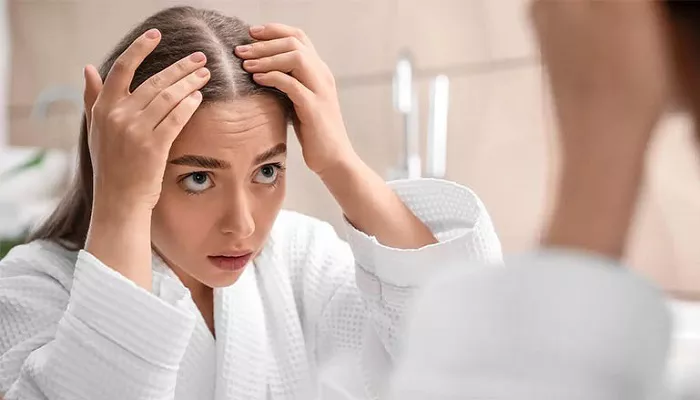Women are being cautioned about the hidden risks of certain everyday hairstyles, which could be contributing to long-term hair damage and even permanent hair loss. Dermatologists are warning that styles that pull the hair tightly—such as sleek ponytails and buns—can put excessive stress on hair follicles, potentially leading to a condition known as traction alopecia.
Dr. Suhail Alam, a skin and hair care expert, explains that these tightly pulled styles can gradually weaken the roots. “These hairstyles cause constant stress on the hair follicles, resulting in progressive hair loss,” he said.
A study published in the Journal of the American Academy of Dermatology supports this concern, revealing that nearly one in three women who regularly wear such hairstyles experience some degree of hair thinning or loss.
Hair Care Tips to Prevent Damage
Beyond hairstyles, Dr. Alam points to several everyday habits that can harm hair health. Here are key hair care steps to avoid common pitfalls:
Sleeping with Wet Hair
Going to bed with damp hair increases the risk of breakage. Hair is most fragile when wet, and friction against a pillow can cause split ends and tangling. Allowing hair to air dry or blow-drying it before sleep is strongly advised.
Using Cotton Pillowcases
Cotton creates friction that can damage both hair and skin. Dr. Alam recommends switching to silk or satin pillowcases, which are gentler and help maintain the hair’s natural structure.
Overwashing Hair and Skin
Washing hair more than two to three times a week, or cleansing the face too often, can strip away natural oils that protect and nourish. This may lead to dryness, irritation, and increased vulnerability to damage.
Hot Showers
Prolonged exposure to hot water can dry out the skin and scalp. Dermatologists advise keeping showers under 10 minutes and using lukewarm water to preserve the body’s natural moisture balance.
By making small adjustments—such as choosing looser hairstyles and adopting better nighttime routines—women can protect their hair and promote long-term scalp health. Following consistent hair care tips and seeking professional hair health advice when needed are essential steps in maintaining strong, healthy hair.
Related Topics:
- Eating Fish and Hair Growth: Myth or Backed by Science?
- Bella Hadid Unveils “Supermodel Blonde” Look at Cannes, Drawing Gigi Comparisons
- Top Hair Growth Products for Men Backed by Experts


